|
6/18/2022 0 Comments Don't fear phantomsSleep paralysis has been offered as an explanation for some alien abduction experiences (I first read about it from Carl Sagan but I'm sure he wasn't the first), and the evidence shows the explanation is a good one. 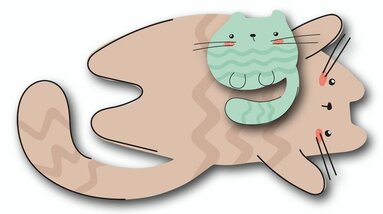 Seeing small shadowy staring entities with bad intent around your bed, being paralyzed, feeling yourself levitate and pass through the wall - all while the fear centers of the brain are going haywire - and then perhaps falling asleep to have a nightmare about an examination (or feeling you have been "put under")... It's no wonder that some people interpret this as a real event. Nobody I've spoken to (in real life), other than relatives who like me suffer from sleep paralysis, had ever heard of it. Apparently it's not well known among the general population, and perhaps not among therapists either - certainly it's not something abduction therapists could have explored deeply, or they'd realize it could explain many of their clients' experiences. Metastudy on sleep paralysis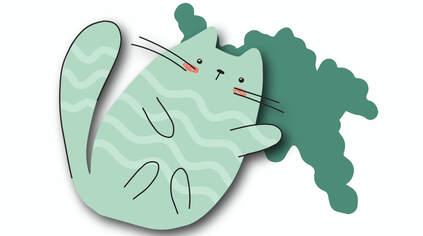 A metastudy looked at the correlation between sleep paralysis and various factors. Sleep paralysis usually occurs while falling asleep or waking up. The body is paralyzed as in REM sleep, to prevent you acting out your dreams. So your brain is awake, but your body hasn't caught up yet. Your eyes are open but you can't otherwise move, except for breathing. You may experience:
Significant predictors of sleep paralysis - it's important to note these are not symptoms or causes of sleep paralysis, just things that a sufferer may also suffer from:
Possible significant predictors of sleep paralysis (some studies found, others did not):
These factors were NOT found to be significantly correlated with sleep paralysis:
SOURCE: Denis, French, Gregory, A systematic review of variables associated with sleep paralysis. Sleep Medicine Reviews 38 (April 2018), pp. 141-157. See also: Article on Skeptic.com by Heidi Love who suffered from extreme episodes of sleep paralysis and learned to enjoy them (I certainly never did). See also the reader comments. She describes it as a form of lucid dream. No one really knows the prevalence of sleep paralysis, or its causes and cures. The research is all over my place so I did my best to summarize. The "evil presence" that visits me and levitates me off my bed is 4' tall shadowy alien greys. I force myself not to fall asleep, but rather to attempt to move and break the spell, so I've never had a dream immediately following an episode. I've never been "abducted" into an alien craft or regressed to "recover memories" about a paranormal experience. But I can absolutely understand how sleep paralysis may be misinterpreted, in our culture, as an alien visitation. The power of suggestion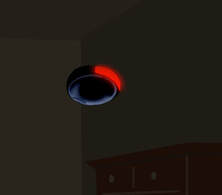 Recreation of the drone that appeared for about 1 second just before the orb Recreation of the drone that appeared for about 1 second just before the orb After talking recently to someone who experiences glowing orbs during sleep paralysis, which I never had, this week I had my first glowing orb experience! I woke up on my back, paralyzed as usual. First I saw a drone with a red light hovering in the room. It was rather like a robot vacuum cleaner, only about 6" diameter, 5' from the floor near the corner of the room, actually more on hubby's side of the bed. Is he a person of interest? Then a brilliant, burbling glow rose up over the foot of the bed, surrounding a white orb. A second later everything vanished because hubby jabbed me in the arm which broke the paralysis and the spell. (I've trained him to do this.) Glowing orbs in the bedroom are reported by experiencers. I assumed they were hallucinations or dreams but didn't associate them with sleep paralysis because I'd never seen one - but now that I have, I can add them to the list of symptoms. Phantoms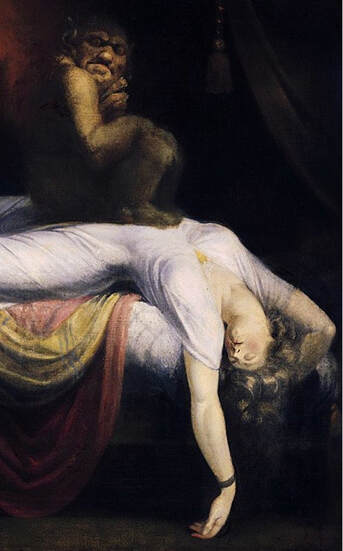 The Nightmare, by Henry Fuseli, 1781 The Nightmare, by Henry Fuseli, 1781 I created the graphic at the top for sharing. If someone describes an experience to you that includes these elements, but they've interpreted it as paranormal, perhaps take the opportunity to offer a different perspective. It seems clear many alien abductions from beds could actually be sleep paralysis followed by a dream, which all seems real on recall. Hypnotic regression brings forth imaginative details and implants those fantasies as "memories". My observation is that many experiencers (who believe they've been abducted or had a CE5) at some point talk about childhood abuse or neglect, or about substance use/abuse. So I have some thoughts on that. Today I spoke to a relative - like me he grew up in a safe loving home, never felt threatened, always knew he'd be protected. He's suffered sleep paralysis episodes since early childhood. At age 8 he realized it wasn't real: he calls this milestone the development of his "critical consciousness." We all develop critical consciousness around this age - the ability to distinguish fantasy from reality. A 6-year-old might think the real Elsa came to his birthday party. At age 9 he knows it's a lady in costume. The difference with sleep paralysis is: it feels realer than real. If you don't know what it is, your critical consciousness doesn't kick in. It's like the 9-year-old grows up still thinking Elsa came to his party. He may even misremember her appearance, as he plays back the memory in his head, as looking like the cartoon. Just as I perceive the entities in my room as short shadowy humanoid shapes observing me, but remember them later as alien Greys with huge eyes (details that weren't actually "seen" in the hallucination). So while adults may apply critical consciousness to every other area of life, a sleep paralysis sufferer who still thinks it's "real" isn't applying critical consciousness here. And culture tells them how to interpret the experience (old hag, succubus, tokolosh, jinn, demon, alien). When he was very young, my relative would try to resist the entity as it yanked him by the ankle off the bed. Every time he fell to the floor, he immediately found himself back on the bed again. This helped him realize that it wasn't real and that nothing bad would happen. He was, after all, living in a household where bad things didn't happen. It was easier to just let the non-existent entity win. He also describes the entity tugging at him, then catapulting him through the wall. He learned to let it happen because on the other side of the wall a lucid dream was waiting for him. (He is highly interested in improving his lucid dreaming skills, and found that changing his drug/alcohol habits, whether increasing or decreasing, tended to increase the chance of lucid dreaming. Since he strongly associates lucid dreaming with sleep paralysis, it's possible altering drug habits will also increase sleep paralysis episodes.) He also feels vibrations - "Like touching your tongue to a 9V battery" but through his entire body. I get buzzing and vibrations too. And of course intense fear... which he's learned to overcome. "Don't fear the phantoms," he tells me.
The fear unfortunately is my brain chemistry screwing up - I haven't learned to ignore it even though I quickly realized as a 13-year-old that the hallucinations weren't evil. I interpreted it as being all in my head, some weird sleep disorder, perhaps because I had a safe happy home where nothing bad happened, and rational parents. While the experiences were often terrifying while they lasted, even after I learned about sleep paralysis in my late 20s, there was no lingering trauma whatsoever. What about a child who isn't fortunate enough to have that kind of home? Stress affects memory formation. Abuse is stressful. Regression in adulthood generates imaginings that feel like memories. Add sleep paralysis episodes filled with fear and malevolent entities, ignorance about what is actually happening, and lingering trauma caused by the fear the events are paranormal - could this be a recipe for an unshakable belief you're being visited or abducted by aliens?
0 Comments
Leave a Reply. |
Charlie WiserI'm blogging about the Three-Dollar Kit. Archives
April 2024
CategoriesAll Anjali Ariel Betty & Barney Hill Misc Skinny Bob Travis Walton Westall |
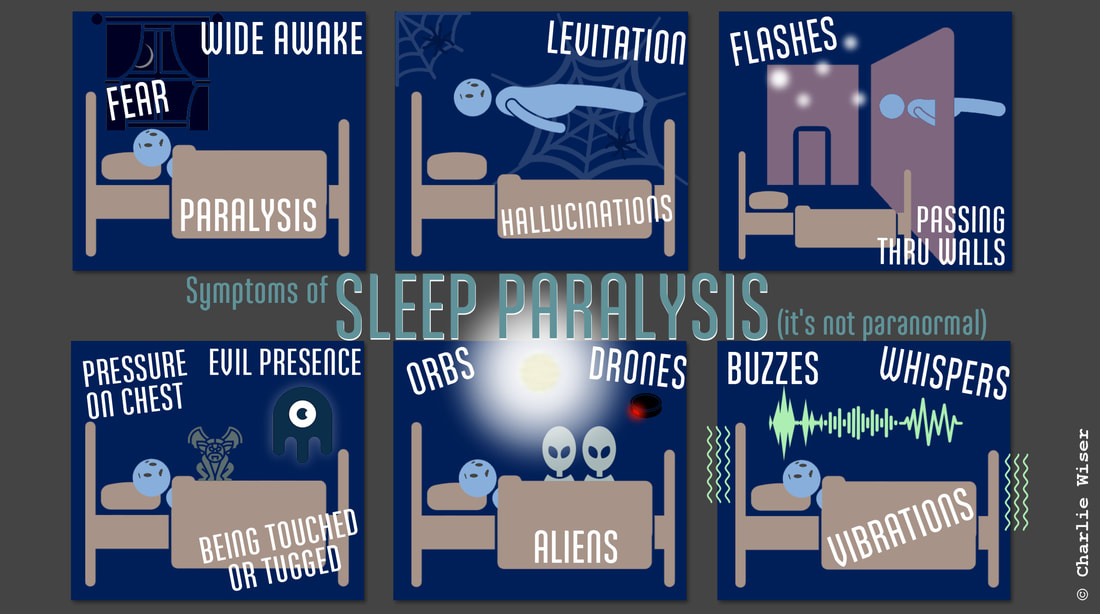

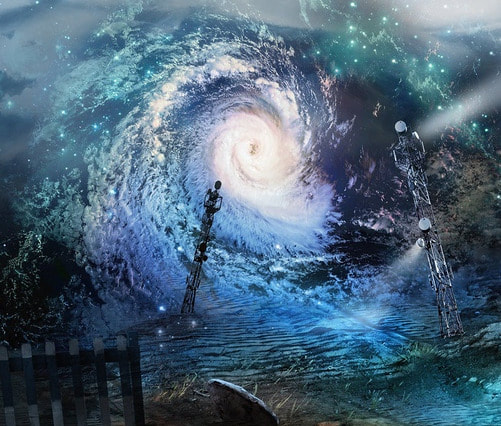
 RSS Feed
RSS Feed
